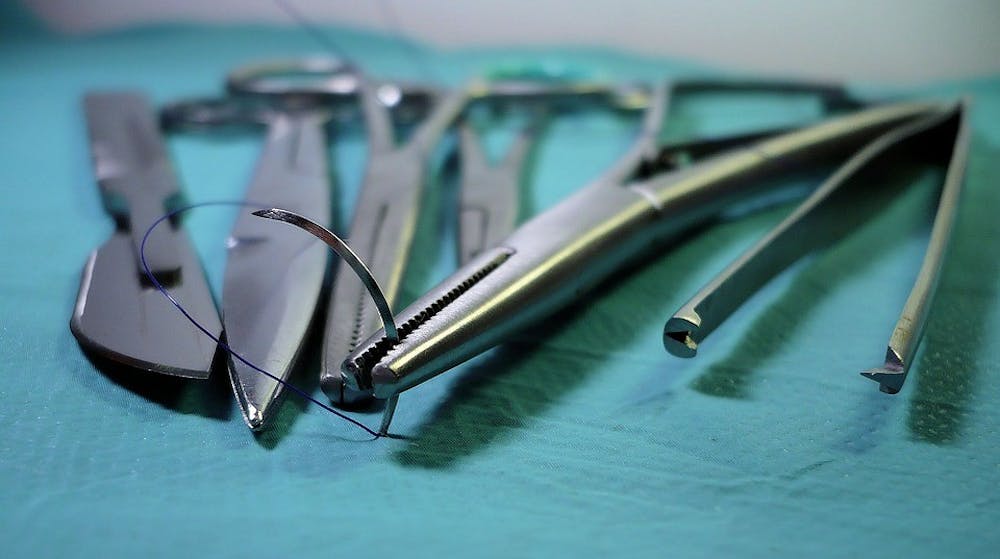Hopkins surgeons carried out the most complicated penile transplant ever performed in a 14-hour operation at the end of last month. Their patient, a U.S. army soldier, sustained traumatic genital injuries while serving in Afghanistan.
Professor of Plastic and Reconstructive Surgery Richard Redett explained in an interview with The News-Letter that the patient, who asked to remain anonymous, originally contacted them to receive a conventional penile reconstruction. However, he wasn’t a good candidate because of the nature of his injuries.
“He didn’t have a lot of donor tissue he could spare,” Redett said. “In addition, he was not only missing his penis, he was missing part of his lower abdominal wall and part of his scrotum.”
In a statement released by the Hospital, the patient explained the personal importance of the operation.
“It’s a real mind-boggling injury to suffer, it is not an easy one to accept,” the patient said in the statement. “When I first woke up, I felt finally more normal... [with] a level of confidence as well.”
Redett’s patient suffered the injury due to a bomb blast. In addition to the genital trauma, he lost both legs at the knee.
Redett explained that at first, they were not ready to offer him a full penile transplant. At the time, only one had been done anywhere in the world.
“We went into the lab and started doing cadaver studies trying to figure out how to transplant such a large unblocked piece of tissue,” he said. “Once we figured out how to do it, we contacted him and he became our first transplant human.”
According to Redett, they estimated that the surgery would take about 14 hours.
He added that before the operation, which occurred on a Monday, members of his team traveled out of state to obtain the transplant tissue.
“That whole procedure took about four or five hours,” he said. “We started that Sunday night, flew back to Baltimore, and started the transplant probably at around 3 in the morning and finished at 5 later that day.”
A small part of the patient’s penis remained, which they used to attach the transplant tissue. They also connected four veins, three arteries and two nerves in the hope of restoring normal function to the patient’s penis. This includes regular urination and sexual stimulation.
Surgeons did not transplant the donor’s testicles due to the ethical concern that their patient would be able to father a child which would be biologically the donor’s. Instead, he is taking testosterone supplements.
The patient is also taking immunosuppressive drugs which aim to help his body accept the transplant.
According to the Scientific Director of the Hopkins Reconstructive Transplant Program Gerald Brandacher, they tried to minimize the amount of these drugs which were necessary.
He explained that taking immunosuppressive drugs could increase the likelihood that the patient would suffer hypertension, malignant disease or infection.
“They are very powerful drugs that weaken your immune system and they have significant side effects and toxicities long term,” Brandacher said in an interview with The News-Letter.
He added that many of those patients are very young, presenting more long-term concerns about taking the drugs.
“They have a long life-span ahead of them. Everything we can do to minimize any toxicities or side effects of their chronic medication that they need is going to be advantageous for them.”
He added that he hoped they could eliminate the need for immunosuppressive drugs so that patients who had their penises removed after penile cancer could have a full transplant.
Redett said that he hoped they could expand their patients to include those who have congenital anomalies due to birth defects, which he said could be severe. He added that his team was in the process of screening new patients for future transplants.
Redett also said that his team was crucial to the success of the operation. In addition, Brandacher thanked the family of the donor.
The team found an organ donor who had passed away. The donor pool was limited due to concerns about the patient’s blood type, skin tone and other factors.
“Getting consent for this type of transplant at this time in life, which is probably the worst moment of the donor family, and then to go ahead with such a particular type of gift is just extraordinary,” he said.





